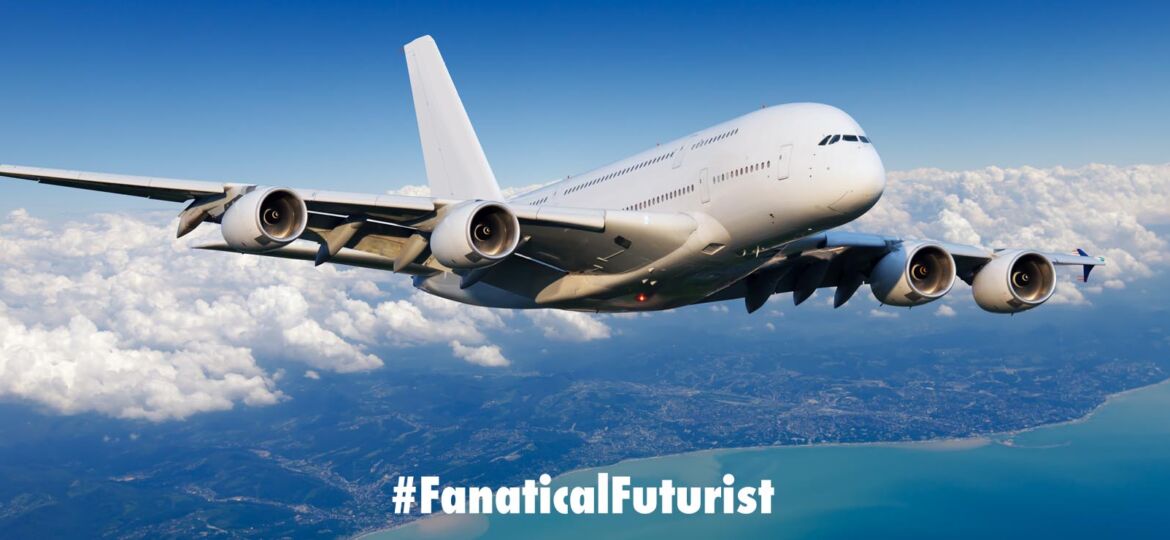
WHY THIS MATTERS IN BRIEF
Hydrogen fuel is seen as the aviation industries only route to true zero emissions flight, and Airbus are leading the way.
 Love the Exponential Future? Join our XPotential Community, subscribe to the podcast, future proof yourself with courses from XPotential University, read about exponential tech and trends, connect, watch a keynote, or browse my blog.
Love the Exponential Future? Join our XPotential Community, subscribe to the podcast, future proof yourself with courses from XPotential University, read about exponential tech and trends, connect, watch a keynote, or browse my blog.
When it comes to trying to decarbonise the global aviation industry Airbus is ahead of the pack with their zero emissions Zero-E line of hydrogen aircraft which they unveiled late last year. And now, just months after they used an A380 to test a new open fan engine concept which could cut aircraft emissions by up to 20% they’re using another A380 demonstrator to test their first hydrogen powered zero emissions jet engine.
When Emirates received its 123rd Airbus A380 in December it marked the end of the line for the biggest passenger plane ever built, just 16 years after launch, with new orders dwindling as a result of advances in technology making newer models more economical, and the pandemic’s devastating impact on global demand.
The Future of Aviation and Mobility, by speaker Matthew Griffin
Now the manufacturer has announced plans to retrofit its super-jumbo, which has a capacity of 525 passengers, with hydrogen fuel technology as part of ongoing efforts to introduce the world’s first zero-emissions aircraft by 2035. The project is a partnership with CFM International – a joint venture involving GE and Safran Aircraft Engines.
Hydrogen-powered gas turbines will be installed between the A380’s two upper level doors, with storage and distribution systems for the fuel located inside the aircraft, which was chosen for the test due to its huge size, which Airbus believes will allow it to better evolve the concept over time.
Learn more about the new concept engine
“This is key in enabling us to achieve our ambition of having a zero-emission aircraft in commercial service by 2035,” said Glenn Llewellyn, a leader on aviation climate strategy and VP of Zero Emission Aircraft at Airbus, in a video posted to the company’s YouTube channel.
With global air travel accounting for 915 tonnes of CO2 in 2019 alone, the pressure is on the aviation sector to perfect lower and zero-emission alternatives. Last year, it emerged that Europe’s five largest airports – London Heathrow, Paris Charles de Gaulle, Frankfurt, Amsterdam Schipol and Madrid Barajas – emitted more CO2 than the whole of Sweden.
















